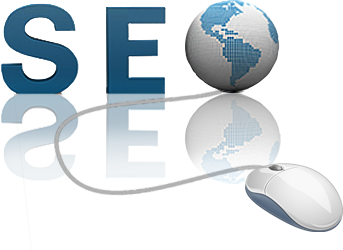 Search Engine Optimization (SEO) is an essential part of digital marketing. It helps businesses to increase their online visibility and reach more potential customers. On-page SEO is one of the most critical aspects of SEO, and it involves optimizing the content and HTML source code of a web page to rank higher in search engine results pages (SERPs). In this article, we will provide an overview of on-page SEO and offer some tips on how to optimize your web pages.
Search Engine Optimization (SEO) is an essential part of digital marketing. It helps businesses to increase their online visibility and reach more potential customers. On-page SEO is one of the most critical aspects of SEO, and it involves optimizing the content and HTML source code of a web page to rank higher in search engine results pages (SERPs). In this article, we will provide an overview of on-page SEO and offer some tips on how to optimize your web pages.
Keyword Research
Keyword research is the foundation of on-page SEO. It involves identifying the keywords and phrases that your target audience uses when searching for products or services related to your business. You can use keyword research tools, such as Google Keyword Planner, Ahrefs, or SEMrush, to discover relevant keywords and their search volumes. Once you have identified your target keywords, you can use them strategically throughout your website content.
Content Optimization
Content is king when it comes to SEO. High-quality, informative, and engaging content can help you rank higher in search engine results pages. When creating content for your website, make sure to incorporate your target keywords in the title, meta description, headers, and body of the text. However, it is essential to avoid keyword stuffing, which can result in penalization from search engines.
In addition to incorporating keywords, you should also focus on creating high-quality content that provides value to your audience. Make sure to write in an engaging and easy-to-understand tone and use multimedia, such as images and videos, to enhance the user experience.
URL Optimization
URL optimization involves creating search engine-friendly URLs that describe the content of your web page. A good URL should be short, descriptive, and easy to read. Avoid using numbers, symbols, or special characters in your URL. Instead, use hyphens to separate words.
Meta Description Optimization
The meta description is a brief summary of your web page’s content that appears below the title tag in search engine results pages. It is an opportunity to entice users to click on your website link. A good meta description should be between 120 and 156 characters and include your target keyword. Make sure to write a compelling meta description that accurately describes your content and encourages users to click through to your website.
Title Tag Optimization
The title tag is the text that appears at the top of your web browser and in search engine results pages. It is one of the most critical on-page SEO factors, and it should include your target keyword and accurately describe your web page’s content. Make sure to keep your title tag under 60 characters to ensure that it displays correctly in search engine results pages.
Image Optimization
Images can significantly enhance the user experience on your website, but they can also slow down your website’s loading speed if they are not optimized correctly. To optimize your images for SEO, make sure to include your target keyword in the file name and alt text. Compress your images to reduce their file size, and use descriptive captions to provide context.
Final Thought: On-Page SEO
On-page SEO is essential for businesses looking to increase their online visibility and reach more potential customers. By following the tips we have outlined in this article, you can optimize your website’s content and HTML source code to rank higher in search engine results pages. If you would a more professional touch for your on-page SEO strategy, here at Freelance Designz, we offer a range of SEO services, including on-page optimization, keyword research, and content creation. Contact us today to learn how we can help you improve your website’s search engine ranking and attract more customers to your business.

